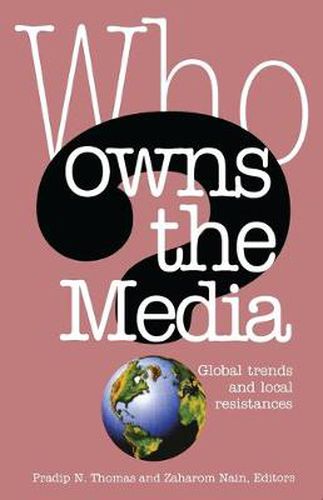Readings Newsletter
Become a Readings Member to make your shopping experience even easier.
Sign in or sign up for free!
You’re not far away from qualifying for FREE standard shipping within Australia
You’ve qualified for FREE standard shipping within Australia
The cart is loading…






The US model of media control and policy making - corrupt and dominated by powerful special interests - is being rapidly exported across the world. Some countries are attempting to preserve their own cultural production, and there are moves to try to keep culture out of the control of the World Trade Organisation (WTO). Many books on the political economy of communications have either focused on general tendencies internationally, or have focused on the links between markets and media freedom in specific countries and regions. This book focuses on both local and international forces. While critiquing international capital, it also acknowledges the bargains that are struck between the local operators and transnationals. The contributors demonstrate the misfit between media ownership and public accountability and look ahead for ways to enable citizens around the world to become effective participants in media policy making.
$9.00 standard shipping within Australia
FREE standard shipping within Australia for orders over $100.00
Express & International shipping calculated at checkout
The US model of media control and policy making - corrupt and dominated by powerful special interests - is being rapidly exported across the world. Some countries are attempting to preserve their own cultural production, and there are moves to try to keep culture out of the control of the World Trade Organisation (WTO). Many books on the political economy of communications have either focused on general tendencies internationally, or have focused on the links between markets and media freedom in specific countries and regions. This book focuses on both local and international forces. While critiquing international capital, it also acknowledges the bargains that are struck between the local operators and transnationals. The contributors demonstrate the misfit between media ownership and public accountability and look ahead for ways to enable citizens around the world to become effective participants in media policy making.